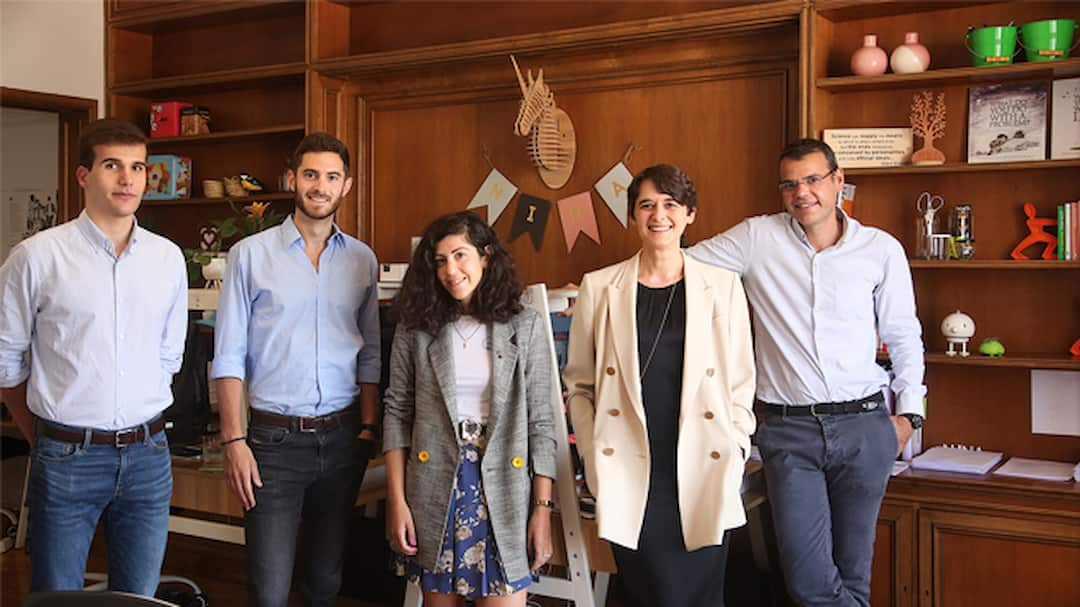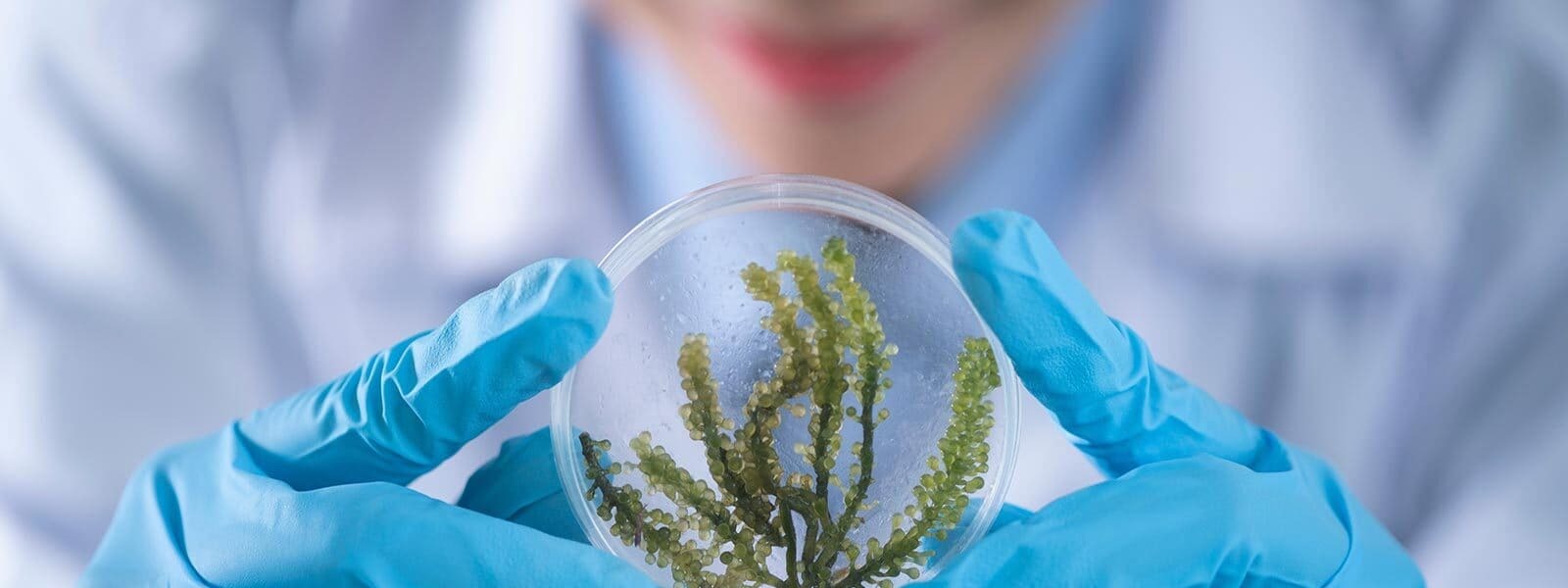
Marta-Gaia Zanchi, founder at Nina Capital: “There are excellent research organizations in Barcelona and an abundance of talent”
20 Jan 2021
Business Investments · Life Sciences
Nina Capital is a Barcelona-based venture firm that seeds health tech companies internationally. Founder and managing partner Marta-Gaia Zanchi, with 10+ years of expertise in Silicon Valley working with startups, investors, universities, and corporations, started the firm in 2019 with a vision to serve entrepreneurs across both sides of the Atlantic.
Previously, Zanchi was the Founder and Director of Biodesign for Digital Health at the Stanford Byers Center of Biodesign and holds a Ph.D. in Electrical Engineering (Stanford University).
Nina Capital has raised 18M€ for its debut inaugural fund and has invested in 17 companies that develop technologies to assist physicians in cancer detection or stroke management, among other healthcare needs.
We talked with Marta-Gaia Zanchi and Sebastian Anastassiou, associated at Nina Capital, about how the healthcare industry is growing in Barcelona and their role as active investors in their portfolio companies.
You moved from Silicon Valley to Barcelona in 2019 to fund your health tech venture capital fund, Nina Capital. Why in Barcelona?
Marta: The idea behind Nina Capital was to build a firm that would fill a European gap at the intersection of healthcare and technology and at the earliest stages of startup creation. To decide where it would be, I made a list of criteria. I thought it made sense to be somewhere with an international reputation regarding healthcare quality and excellence in life science research. Barcelona came out at the very top in my research.
I also thought it should be one location very well connected logistically, and Barcelona happens to be extremely well connected with California and Boston, two major poles of health technology innovation in the United States, and with the rest of Europe.
I also wanted to be someplace where I knew I would be able to find great talent from good universities and business schools. That’s how I like to build teams: hiring from great young talent pools. So, Barcelona obviously checks the mark on that as well. And I had actually never seen the city, but it looked pretty on postcards!
You have a long career in the digital health industry, with different roles while working in Silicon Valley. How did you become an investor in this sector?
Marta: It was mostly out of necessity that I started interfacing with venture capital as an industry while I was working with entrepreneurial Stanford students and startups in Silicon Valley. There was one common struggle, which was to be able to find funding to spinoff and grow companies. So, I started helping those startups connect to capital. Over time, I joined an angel group and then another, and I ended up falling in love with the trade.
“Great local schools, such as IESE Business School, attract learners from all over Europe and beyond. With its high quality of life, Barcelona attracts entrepreneurs too”
What do you think are the assets of the life sciences sector in Catalonia?
Marta: There are excellent research organizations that do high-quality work. As I had hoped, there is an abundance of talent. Great local schools, such as IESE Business School, with which we have a wonderful relationship, attract learners from all over Europe and beyond. With its high quality of life, the city attracts entrepreneurs too. And even in the worst of the pandemic, we have been able to work collaboratively with a number of clinicians that are excited to improve patient care.
Sebastian: The healthcare ecosystem as a whole is growing: you have initiatives like the Barcelona Health Hub and Barcelona Tech City, Biocat, and programs like the Moebio. The presence of pharmaceutical companies is also an asset, both with local-born and global companies, such as Novartis. I also noticed an expansion of what they do outside of just pharmaceuticals, which further supports the ecosystem as a whole. For example, Ferrer and Almirall have recently launched digital health accelerator programs.
“Barcelona happens to be extremely well connected with both California and Boston, two major poles of health technology innovation in the United States, and with the rest of Europe”
Where does the funding at Nina Capital come from?
Marta: We serve mostly companies and organizations from the healthcare, digital, and energy industries. We also serve family offices and high-net-worth individuals. It’s a great mix that aligns well with our vision and offers opportunities for adding value to our portfolio companies. One of our most recent Limited Partners is Aldea Ventures, a Fund of Funds, one of our industry's newest excellent initiatives.
We are here to build a firm with a vision for a platform of fund offerings serving Limited Partners and need-driven health technology founders who deeply believe in the possibility of aligning financial and societal impact in the healthcare industry.
What are the key elements that you consider when investing in a startup?
Sebastian: Number one is the team: the actual people behind the startup. Are they driven? Do they have a strong understanding of healthcare? If you look at our portfolio, you see we have invested in a number of young, first-time founders. And then, of course, there is the technology itself. Is it strong? Does the solution address an unmet need in the healthcare space? Is it backed by strong scientific and clinical evidence?
Marta: Our investment criteria and process are inspired by Biodesign, a Stanford-born methodology that I was fortunate to learn for the first time in 2007. I later went on to teach for numerous years at the same University. Fundamentally, it says that a deep understanding of the need is the DNA of every great invention and that technology and business fundamentals must respond to the need’s criteria. We apply this thinking in our own criteria and process.
What is your role as an investor in a startup?
Sebastian: At Nina Capital, we are active investors. We don’t just provide the money; we provide added value. We work closely with founders providing them advice and support from our own networks, experience, and knowledge, as well as access to our network of experts and organizations. There needs to be chemistry between the founding team and us. It’s a partnership.
Marta: Healthcare is a very particular industry, especially when you are trying to improve healthcare through technology innovation. It really does require a very multidisciplinary team, and investors are a startup’s opportunity to add a new dimension to this spectrum of disciplines. When founders come to us, we encourage them to think of all the ways in which we could work together. They have to choose us as much as we choose them.
You have recently invested in one Catalan startup, Methinks. Could you tell us more about it?
Sebastian: Methinks has developed an artificial intelligence solution to help diagnose stroke. Their mission is to diagnose it earlier and quicker, so that patients that have just had strokes actually get the treatment needed as quickly as possible and increase the chance of a better life.
Marta: Our first investment ticket is generally between 150.000 and 500.000 euros at the seed stage, sometimes at the pre-seed stage for exceptional companies. We stay close to the team as it readies for subsequent funding events and double down on our initial investment by participating in the series A investment round, including investing in bridge rounds via equity-like securities… The timing was very good for Methinks and for us. We invested in the company, and immediately after, Methinks launched a crowdfunding campaign in Barcelona and raised over €1M million more.
This was your first investment in a Barcelona-based startup. Do you think there will be more?
Marta: We focus on the need, the technology, and the team. We fund companies wherever they are, and many of our teams are truly international from day one, with US subsidiaries and EU headquarters or vice versa. But considering the quality of the people we see in Barcelona and how the ecosystem is evolving, I am sure that our work here is just beginning.
How is the Covid-19 pandemic affecting investment in digital health and medical technology?
Marta: I think that if the firm had tried to launch just about a year later, it would have been a lot harder to start—even if the events of 2019 have shown healthcare to be the most resilient to COVID compared to any other industry.
There is a lesson there, a reminder not to wait to start something new. I humbly say it—we were just extremely lucky, and timing was on our side. The pandemic will ultimately benefit venture capitalists and their Limited Partners who have been brave enough not to be deterred by the uncertainty of the situation, choosing instead to keep close to how the needs of the healthcare industry are evolving.
This is an important point that I would like to emphasize for the benefit of entrepreneurial talent in Barcelona: the healthcare industry is outperforming any other industry. The share price performance of healthcare is the only one with double-digit growth. There will be a lot of companies with renewed liquidity, and it will be spent on innovation and growth. We are very lucky to be in this position.
Talent availability is key for the development of the health industry in Catalonia. What can be done to keep attracting talent to Barcelona and Catalonia?
Sebastian: What attracted me to Barcelona was the lifestyle and the quality of life. The fact that in the city you have the sea, the mountains, you can go hiking, skiing, surfing, all in the same day. It’s a slower pace of life than where I was in London, but it still has a cosmopolitan feel. I think Barcelona should really play to that strength: the very high quality of life.
Funding from international venture capital firms is rising in Catalonia; how can we keep accelerating this process and compete with other locations?
Sebastian: One thing would be focusing on translational funding. Provide government initiatives to bridge the gap between early-stage research and commercialization so startups are developed and de-risked enough for investors to come in.
Marta: Another thing is that there should be reforms to improve access to stock options to employees of startups. It would be easier to attract talent if it could be compensated in a way that better aligns with the business's success.
What are your goals for the future? What would you like to accomplish?
Marta: Our goals are for the long term. We are a startup, building the pieces of a firm with a long-term vision to become a platform for continuous investment in great health technology companies internationally.
I dream that, in time, we will be able to measure our success not just in terms of financial returns but also by the number of patients that we have indirectly helped with access to innovative technologies and organizations that we have been able to support toward their aim to improve adoption and application of technologies in care services.
That marriage of economic and health impact results, enabled by need-driven technology innovation, is the challenge and is the beauty of our job as specialized investors.
Our services.
-

Business Location Service
See moreGet all the information about Barcelona-Catalonia industrial buildings, land, business centers, or office spaces.
-

Access to talent
See moreAccess to all sources of available talent for international companies in Barcelona-Catalonia.
-

Post-investment service
See moreWe offer an aftercare service following your company’s establishment and helping you expand your activity in Catalonia.
More news and success stories
in Barcelona (Catalonia).
-
17 Jan 2025
See more ICL and Dynanonic to invest €285M in a new plant for battery materials in CataloniaICL and Dynanonic to invest €285M in a new plant for battery materials in Catalonia
-
15 Jan 2025
See more s360 opens a new office in Barcelona to boost European expansions360 opens a new office in Barcelona to boost European expansion
-
14 Jan 2025
See more Austrian company Amiblu invests €4.2 million, creating 70 jobs in TarragonaAustrian company Amiblu invests €4.2 million, creating 70 jobs in Tarragona
-
09 Jan 2025
See more KION Group establishes Digital Hub in Barcelona's DFactoryKION Group establishes Digital Hub in Barcelona's DFactory

